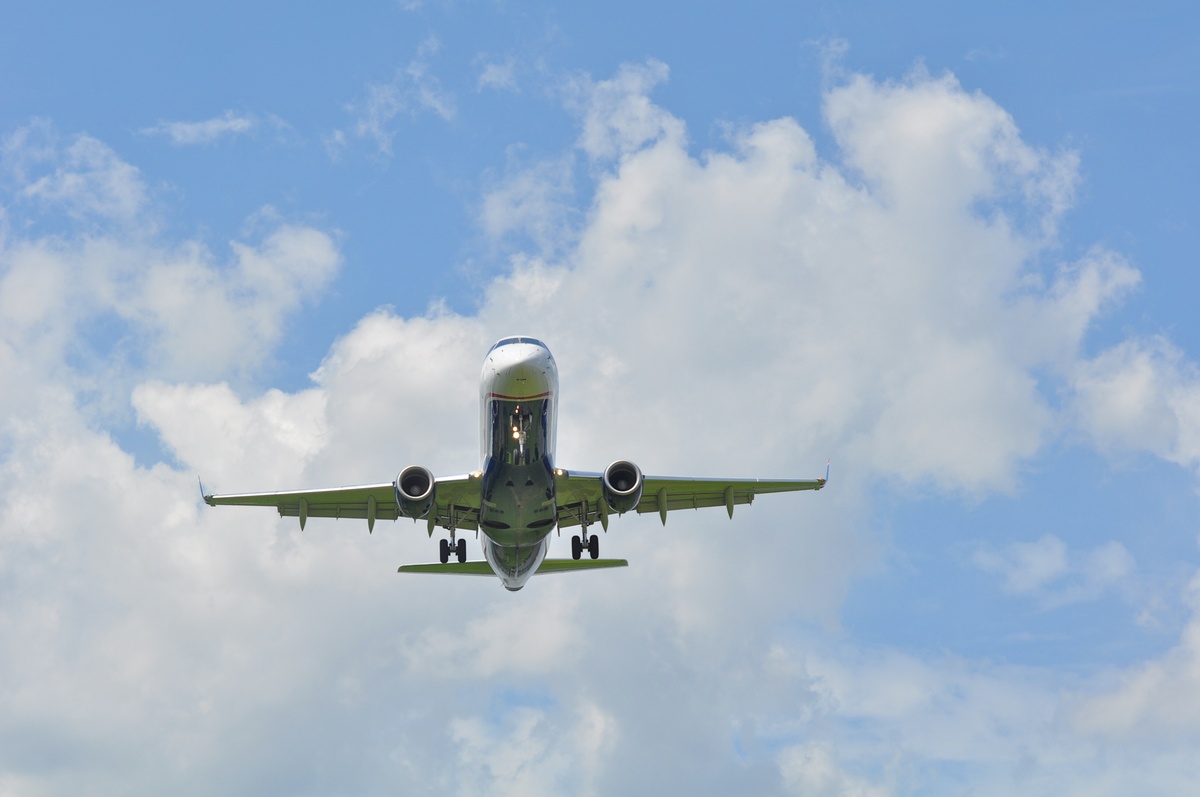
Flying While Pregnant: What You Need to Know, From Rules and Restrictions to Airline Policies
Travelling while pregnant can be an overwhelming, even scary thing, but with the right preparation, it can be a smooth, enjoyable, and above all, safe experience. When you’re expecting, it's important to plan ahead and be aware of the guidelines and tips that can make your journey more comfortable. From knowing the best times to fly during your pregnancy to understanding airline policies and ensuring you have all the necessary documentation, a little knowledge goes a long way. This comprehensive guide aims to equip you with essential information on safety precautions, airline regulations, and practical advice to ensure that flying while pregnant is as stress-free as possible. With proper planning and the right resources, you can travel with confidence and peace of mind.
Is it safe to fly when pregnant?
Flying during pregnancy is generally considered safe, but there are a few factors to keep in mind. Most airlines allow pregnant women to fly up to 36 weeks for domestic flights and 32 weeks for international flights. That being said, you should always consult with your healthcare provider before making travel plans, as every pregnancy is unique.
When can you fly if you are pregnant?
Flying during pregnancy can vary in safety and comfort depending on which trimester you are in. In the first trimester, flying is generally safe; however, many women experience morning sickness and fatigue, which can make travel less enjoyable. It’s important to stay hydrated and take steps to manage nausea if you choose to fly during this period.
The second trimester, which spans from 14 to 27 weeks, is often considered the optimal time to travel. By this stage, the risk of miscarriage is lower, and most early pregnancy symptoms, such as nausea and extreme fatigue, have usually subsided. Many women feel more energetic and comfortable during these weeks, making it a great time for a holiday or necessary travel.
As you enter the third trimester, flying can become more complicated. Airlines have specific policies regarding how late in pregnancy you can fly, typically restricting travel after 36 weeks for single pregnancies and 32 weeks for multiple pregnancies. It’s crucial to check with your airline for their guidelines and ensure you have a fit-to-fly certificate if required. Additionally, always consult with your healthcare provider before planning any travel during the third trimester to ensure it’s safe for you and your baby.

Image by dw-lifestylefotografie from Pixabay.
Airline policies for flying while pregnant
Each airline has its own set of rules regarding pregnant passengers. It is essential to be aware of these policies to ensure a smooth journey. Here’s a brief overview of policies from major UK airlines:
EasyJet pregnancy policy
EasyJet allows pregnant women to fly up to the end of the 35th week for single pregnancies and the end of the 32nd week for multiple pregnancies. They do not require a fit-to-fly certificate unless there are complications. However, it's always wise to carry any relevant medical documentation for peace of mind.
Jet2 pregnancy policy
Jet2 permits travel up to the end of the 35th week for single pregnancies and the 33rd week for multiple pregnancies. A fit-to-fly certificate is required if you’re beyond 28 weeks. This certificate should be obtained from your healthcare provider and presented at check-in to avoid any issues.
British Airways flying pregnancy policy
British Airways allows travel up to the end of the 36th week for single pregnancies and the 32nd week for multiple pregnancies. After 28 weeks, a fit-to-fly letter from your doctor or midwife is necessary. This letter must confirm your due date and state that you are fit to fly, ensuring the airline can accommodate you safely.
Ryanair fit to fly pregnancy policy
Ryanair permits travel up to 36 weeks for single pregnancies and 32 weeks for multiple pregnancies. After 28 weeks, a fit-to-fly certificate is mandatory. This certificate must be signed by your healthcare provider and should confirm that there are no complications with your pregnancy.
TUI flying pregnant rules
TUI allows travel up to the end of the 35th week for single pregnancies and the 32nd week for multiple pregnancies. A fit-to-fly certificate is required after 28 weeks. It's advisable to contact TUI customer service in advance to ensure all your documentation is in order and to clarify any concerns you might have.
Planning your flight
To ensure a comfortable and safe journey, consider these tips when flying during pregnancy:
Stay Hydrated: Airplane cabins can be very dry, leading to dehydration. Drink plenty of water throughout your flight to keep hydrated, which is crucial for your health and that of your baby.
Move Around: Prolonged sitting can increase the risk of blood clots, especially during pregnancy. Try to move around the cabin every hour or so, taking short walks and stretching your legs. If you're unable to walk, flex and extend your ankles and legs while seated to promote circulation.
Wear Comfortable Clothing: Choose loose, breathable fabrics to accommodate any swelling and to ensure you remain comfortable throughout the flight. Compression stockings are also a good idea, as they can help prevent leg swelling and reduce the risk of deep vein thrombosis (DVT).
Seat Selection: For easier access to the restroom and more legroom, select an aisle seat, preferably near the front of the plane. This seat choice will allow you to get up and move more frequently and reduce the inconvenience of climbing over other passengers.
Pack Snacks: Hunger can strike at any time, and airplane food options might not always suit your dietary needs or preferences. Bring along healthy snacks, such as nuts, fruits, and granola bars, to keep your energy levels stable and to curb nausea.
What to expect at the airport
Navigating the airport while pregnant can be less stressful with a bit of planning. Here’s what you can expect and how to make your experience as smooth as possible:
Security screening: If you're uncomfortable with going through the body scanner, you have the right to request a manual pat-down. Security personnel are trained to handle such requests with sensitivity, and you can ask for a female officer to conduct the screening.
Priority boarding: Many airlines offer priority boarding for pregnant passengers. Take advantage of this option to avoid the rush and to give yourself ample time to get settled in your seat.
Luggage assistance: Don't hesitate to ask for help with your luggage. Whether it's from airport staff or fellow travelers, most people are more than willing to assist a pregnant woman. Carrying heavy bags is not recommended, as it can strain your back and potentially cause injury.
Comfort measures: Once you’re through security, take the opportunity to relax before your flight. Consider finding a quiet area or lounge to sit down, elevate your feet, and enjoy a healthy snack or a light meal. If you have time, use the restroom before boarding to avoid needing to rush during the flight.
By following these tips and planning ahead, you can make your air travel experience during pregnancy more comfortable, safe, and enjoyable. Remember to consult your healthcare provider before flying to ensure it’s safe for you and your baby, especially if you’re in the later stages of pregnancy.

Image by Mart Production from Pexels.
Risks of flying when pregnant
Flying during pregnancy is generally safe, but it’s important to be aware of certain risks to ensure your well-being:
Deep Vein Thrombosis (DVT)
Pregnant women have a higher risk of DVT, where blood clots form in the legs due to prolonged sitting. To reduce this risk:
Wear compression stockings: These help improve circulation and prevent clots.
Stay active: Take short walks around the cabin or do seated leg exercises regularly.
Stay hydrated: Drinking plenty of water can reduce the risk of DVT.
Dehydration
The dry air in airplane cabins can cause dehydration, which can lead to discomfort or other complications.
Drink water regularly: Avoid caffeine and opt for water or juice instead.
Moisturize: Keep your skin and lips hydrated with moisturizer and lip balm.
Preterm labour
Though rare, changes in cabin pressure could potentially trigger preterm labour, especially in high-risk pregnancies.
Consult your healthcare provider: Before flying, particularly in the third trimester, get personalized advice from your doctor.
Monitor for signs: Be aware of any unusual symptoms and notify flight attendants if needed.
General tips
Choose the right time to fly: The second trimester is generally the safest time for air travel during pregnancy.
Plan your flight carefully: Opt for shorter flights with fewer layovers to minimize physical strain.
Pack essentials: Carry any necessary medications, medical records, and a doctor’s note, especially if traveling later in pregnancy.
By taking these precautions, you can enjoy a safer and more comfortable flight during pregnancy. Always consult with your healthcare provider before traveling.
Fit-to-Fly Certificate for pregnancy
A fit-to-fly certificate, issued by your healthcare provider, is an essential document that confirms you are in good health to travel by air. This certificate typically includes several key pieces of information. It confirms your expected due date, providing an indication of how far along you are in your pregnancy. Additionally, it contains a brief overview of your medical history related to your pregnancy, ensuring that any potential risks are documented. Finally, it includes a statement from your doctor or midwife explicitly approving your fitness to fly. This document is crucial for meeting airline policies and ensuring a smooth travel experience.
Pregnancy and long-haul flights
Long-haul flights during pregnancy require careful planning:
Seat selection: Choose a seat with extra legroom or opt for an aisle seat to make it easier to move around during the flight.
Plan your meals: Bring healthy snacks and check in advance if the airline offers suitable meal options.
Take breaks: Regular walks and stretches during the flight can help reduce swelling and improve circulation.
Stay hydrated: Drink water frequently to combat the dry cabin air and avoid dehydration.
Comfortable clothing: Wear loose, breathable fabrics and bring a travel pillow for added comfort.
When should you stop flying when pregnant?
Knowing when to stop flying during pregnancy depends on several factors:
Airline restrictions: Most airlines restrict travel after 36 weeks for single pregnancies and 32 weeks for multiples.
Medical advice: Your healthcare provider may advise against flying earlier if there are complications or risks.
Required documentation: After 28 weeks, some airlines may require a doctor’s note confirming your fitness to fly.
Consider your comfort: If you’re experiencing discomfort or fatigue, it may be wise to limit travel, especially on longer flights.
Post-travel recovery: Plan for extra rest and recovery time after long flights, especially if there are time zone changes or layovers.
Compensation for flight disruptions
Travelling while pregnant can be challenging enough without the added stress of flight delays, cancellations, or lost luggage. If you experience any disruptions, you may be entitled to compensation under EC 261.
Flight delays
If your flight is delayed for more than three hours, you could claim up to £520 (between €250 and €600) in compensation. Ensure you keep all your travel documents and receipts.
Flight cancellations
In the event of a flight cancellation, you are entitled to a full refund or an alternative flight. Compensation of up to £520 (between €250 and €600) may also be applicable if the cancellation was within 14 days of departure.
Overbooking
If you are denied boarding due to an overbooked flight, you can claim compensation and are entitled to a full refund or an alternative flight.
Lost luggage
Should your luggage be lost, delayed, or damaged, you can claim compensation for any essential items you need to purchase and for the lost items themselves. Ensure you report the issue immediately and get a Property Irregularity Report (PIR).
Flying when pregnant: Frequently asked questions
85% of passengers don't know their rights. Don't be one of them.
AirHelp has been featured in:



